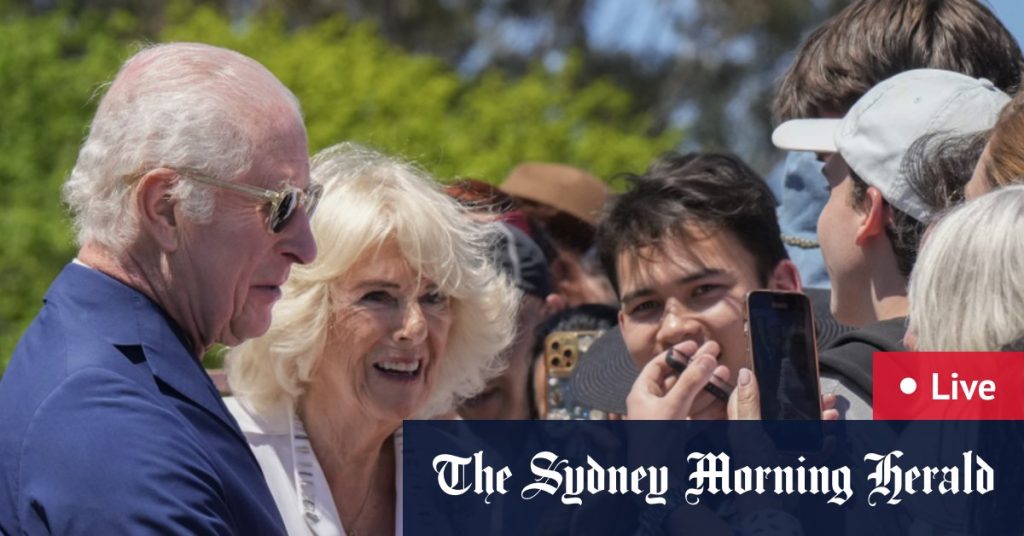Senator Lidia Thorpe’s disruption of a parliamentary reception for King Charles has garnered international attention, with media outlets labeling her actions as “jarring” and “painful”. Thorpe started yelling after the King concluded his speech, accusing him of complicity in genocide and declaring, “You are not our king, you are not sovereign”. This interruption has raised questions about the future of the British monarchy’s reign over Australia, with some, including former prime minister Malcolm Turnbull, suggesting that it may be time to revisit the issue of becoming a republic. The incident has reignited the contentious debate surrounding Australia’s relationship with its Indigenous population, particularly in light of the country’s lack of a treaty with its First Nations people.
The New York Times described Thorpe’s interruption as “jarring” and highlighted the ongoing debate about the role of the British monarch in Australia. Turnbull, speaking to the Times, emphasized that there was no personal animosity towards Charles, but saw the incident as an opportunity to consider the possibility of transitioning to a republic if that was the desire of the Australian people. The Washington Post noted that the incident threatened to revive the debate that surrounded the death of the Queen, highlighting Australia’s position as one of the few settler-colonised Commonwealth nations without a treaty with its Indigenous population. This lack of treaty has been a longstanding issue in Australia’s efforts to address historical injustices and inequalities faced by Aboriginal and Torres Strait Islander peoples.
The Telegraph in London reported on reactions from Aboriginal elders and leaders, such as Nova Peris, Marcia Langton, and Aunty Violet Sheridan, who expressed concerns about Thorpe’s actions potentially misrepresenting their communities. They offered apologies for the disruption, emphasizing that they did not support or condone such actions. The article noted the potential impact of a lone protester’s actions on Australia’s reputation on the world stage, calling attention to the need for a more thoughtful and inclusive approach to addressing historical injustices. Despite the criticisms and concerns raised by various stakeholders, Thorpe remained steadfast in her actions and appeared on Sky News UK to reiterate her stance, stating that she was not concerned about public opinion.
Thorpe’s disruption of the parliamentary reception for King Charles has sparked widespread debate and reflection on Australia’s relationship with the British monarchy, its Indigenous population, and the prospect of becoming a republic. International media outlets have weighed in on the incident, with some highlighting the need for a more inclusive and respectful dialogue about historical injustices and the role of the monarchy in modern Australia. The incident has raised questions about the need for a treaty between Australia and its First Nations people and the broader issue of reconciliation and recognition of Indigenous rights. While opinions on Thorpe’s actions vary, the incident has served as a catalyst for discussions about Australia’s future and the ways in which historical injustices can be addressed and redressed.
In the wake of Senator Lidia Thorpe’s disruption of a parliamentary reception for King Charles, international media outlets have closely followed the fallout and reactions to the incident. Thorpe’s vocal protest, accusing the King of complicity in genocide and declaring that he is not sovereign, has reignited debates about Australia’s relationship with the British monarchy and the question of transitioning to a republic. Former prime minister Malcolm Turnbull has weighed in on the issue, suggesting that the incident may prompt a reassessment of Australia’s constitutional arrangements if that is what the people desire. The incident has also brought to the forefront Australia’s lack of a treaty with its First Nations people, highlighting the ongoing challenges in addressing historical injustices and inequalities faced by Indigenous communities.
The New York Times described Thorpe’s interruption as “jarring” and raised questions about the future of the British monarchy’s reign over Australia. Turnbull emphasized that there was no personal animosity towards King Charles, but saw the incident as an opportunity to consider constitutional reform. The Washington Post highlighted the divisive nature of the incident, noting that it has reignited debates surrounding Australia’s relationship with the monarchy and its treatment of Indigenous peoples. The lack of a treaty with First Nations people has been a longstanding issue in Australia’s efforts to achieve reconciliation and recognition of Indigenous rights. Despite criticisms from some Aboriginal leaders, Thorpe remained steadfast in her protest and reiterated her stance on UK television, stating that she was not concerned with public opinion.
The Telegraph in London reported on reactions from Aboriginal elders and leaders, who expressed concerns about Thorpe’s actions potentially misrepresenting their communities. They offered apologies for the disruption and emphasized the need for a more thoughtful and inclusive approach to addressing historical injustices. The incident has raised questions about Australia’s international reputation and the importance of respectful dialogue in addressing complex issues such as colonialism and genocide. While Thorpe’s actions have sparked controversy and debate, they have also drawn attention to the ongoing struggles faced by Indigenous communities in Australia and the need for a more inclusive and equitable society. Ultimately, the incident has served as a catalyst for broader discussions about Australia’s future and the ongoing legacy of colonization and injustice.


